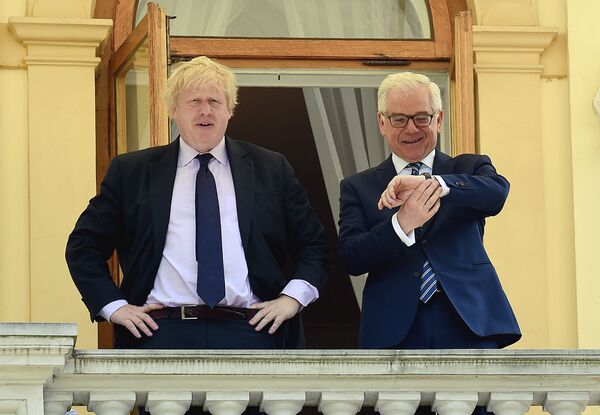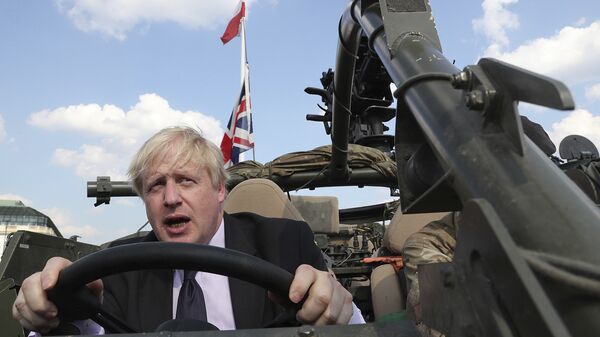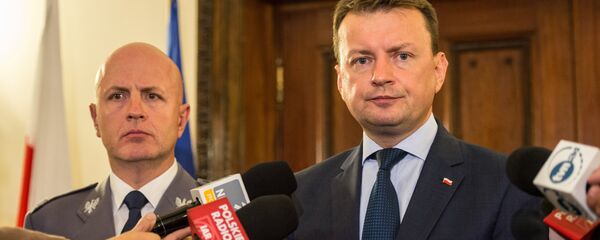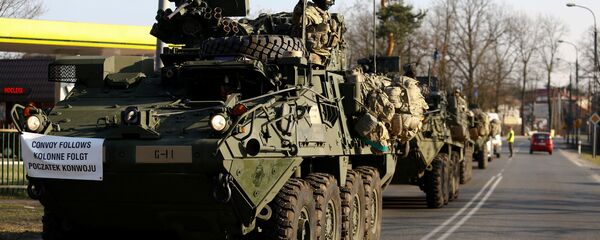During Thursday's trip, Foreign Secretary Boris Johnson and Defense Secretary Gavin Williamson met with their Polish counterparts to discuss security, bilateral relations and London's post-Brexit ties with the EU.
A joint statement released after the talks promised a "stronger and even more strategic" partnership. Polish Foreign Minister Jacek Czaputowicz stressed that Poland and the UK "share similar views on many international issues, especially in relation to security." According to the minister, the two countries also share the "task of strengthening transatlantic links, which are key for the stability of the whole Western world." London vowed increased cooperation with Warsaw on defense and cybersecurity in the face of "growing Russian aggression," the government said in a statement.

Speaking to Sputnik, political analyst and Poland expert Sergei Stankevich said that Warsaw's efforts to grow cooperation with London and Washington appear aimed more at strengthening its status as a regional power than out of any supposed fear of Russia.
"I do not think that Poles fear any Russian threat, as they sometimes claim. The issue is something else: the country's military capabilities are being gradually built up to give the country clout. For this Warsaw spares no expense," Stankevich explained.
Great day in Warsaw talking to Polish foreign minister Jacek Czaputowicz, paying tribute to those who fought for our freedom, and meeting brave UK troops stationed here. pic.twitter.com/e8buxGlxZ3
— Boris Johnson (@BorisJohnson) 21 июня 2018 г.
Western Front
But the growing UK-Poland partnership is not just about using the "Russian threat" for their own political ends, observers say. According to Institute of Slavic Studies senior fellow Petr Iskenderov, the anti-Russian "instinctive attraction" between the two countries is also based on their common interests against Germany.
Furthermore, Iskanderov noted, there is the issue of the Nord Stream 2 gas pipeline project between Gazprom and five Western European energy concerns.
"On the one hand, there's Nord Stream 2, to which Warsaw has expressed hostility. On this issue, Warsaw found support from London against Berlin, the latter being objectively interested in the project," he explained.
"On the other hand, there's the NATO line. In recent months, alliance leaders have been sending signals to Russia on the need to improve bilateral relations. Naturally, both Poland and the UK are against such a step. It's likely that both will work to prevent the final communique at the upcoming NATO summit from containing any compromise formulas," Iskanderov predicted.
According to RIA Novosti political observer Igor Gashkov, Warsaw's anti-Russian and anti-German course is typical fare for the ruling Law and Justice Party (PiS) under the leadership of Jaroslaw Kaczynski.
"Poland under the PiS has maintained a record economic growth rate among Eastern European countries, stimulating an influx of Ukrainian guest workers. Having achieved prosperity, Warsaw is striving to become a serious foreign policy force," Gashkov wrote. London, for its part, seems only too happy to support Poland's ambitions, so long as they support their own anti-EU and anti-Russian foreign policy objectives.
The views and opinions expressed in this article are those of the contributors and do not necessarily reflect those of Sputnik.




